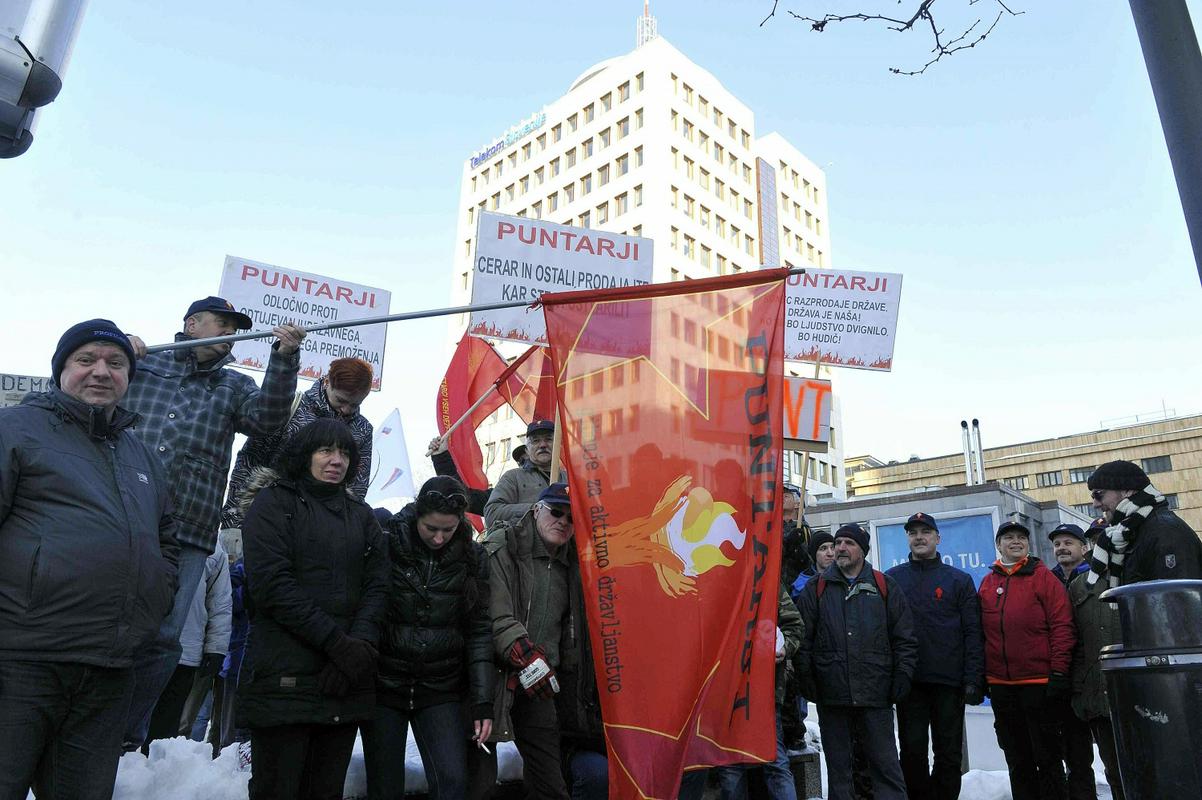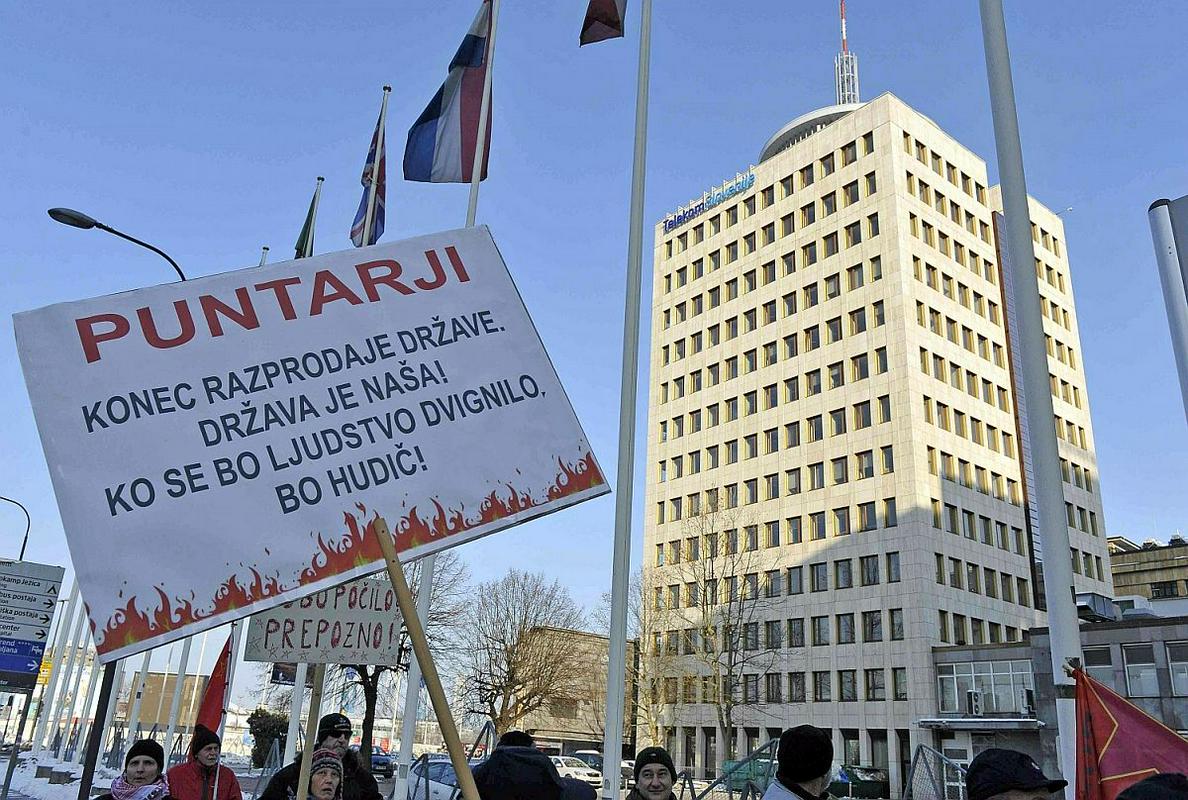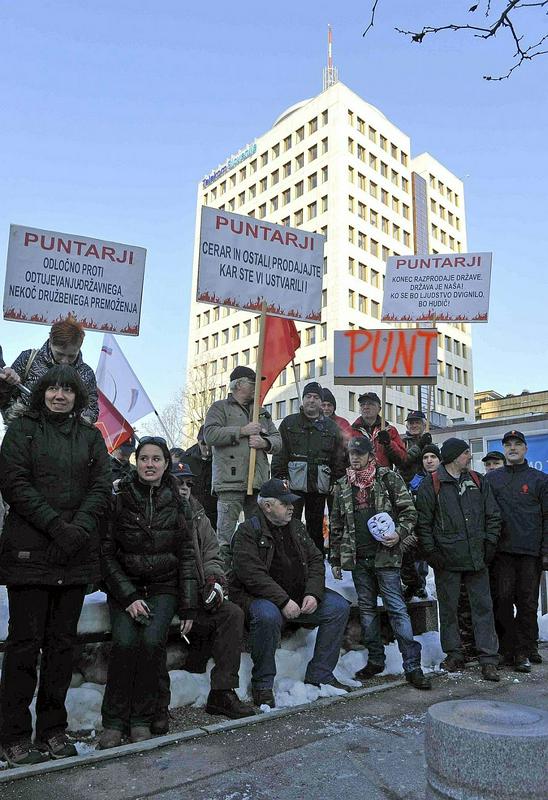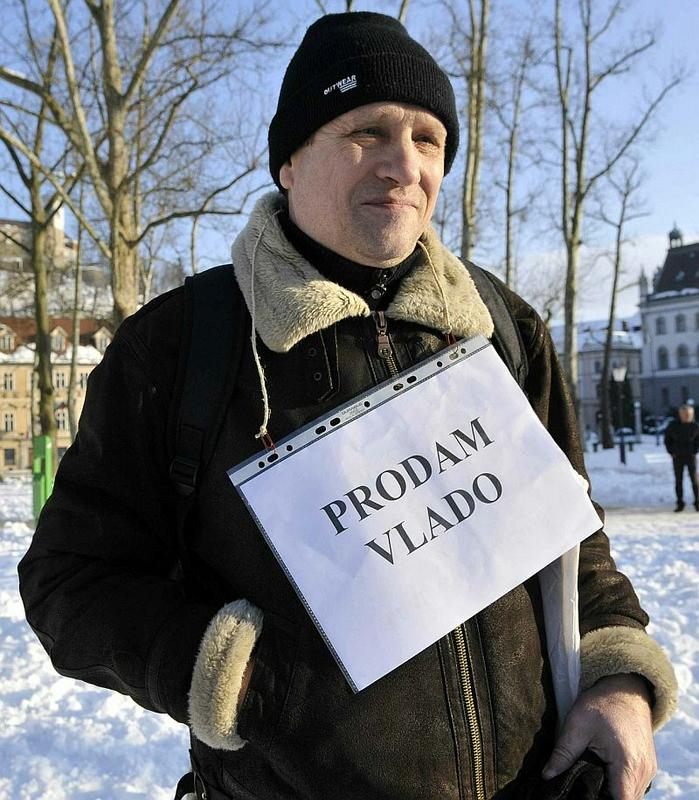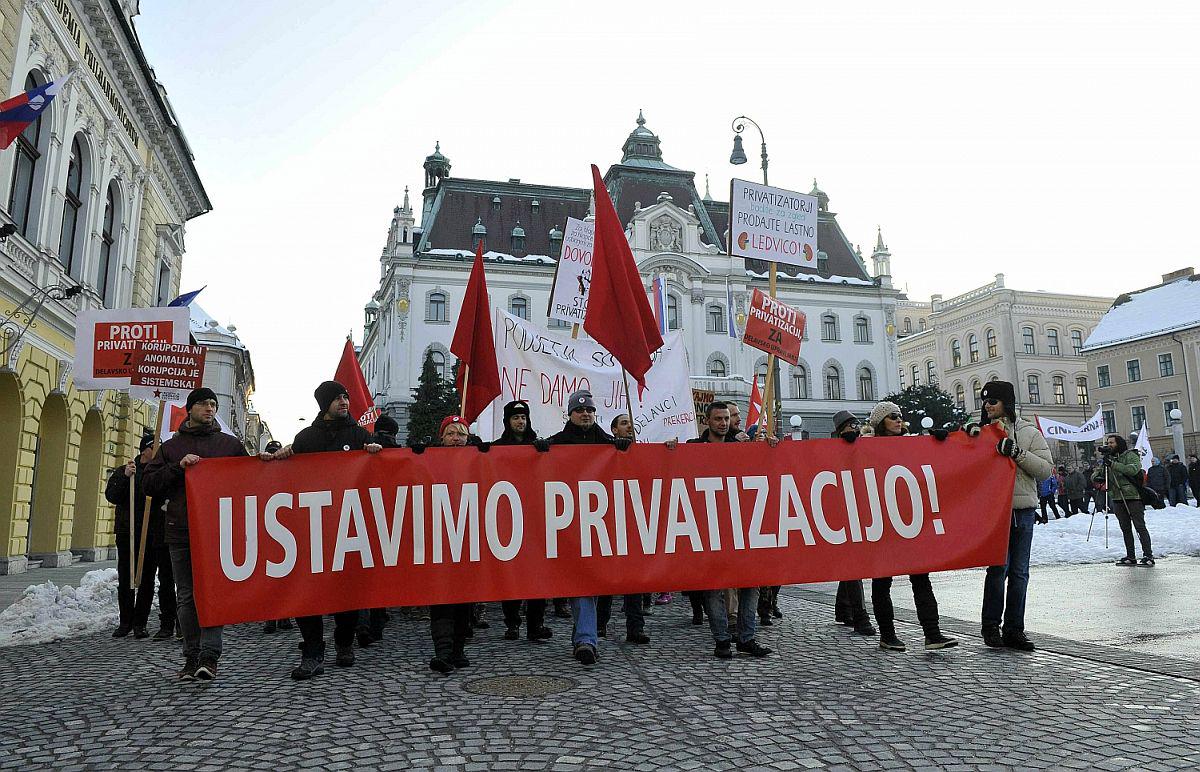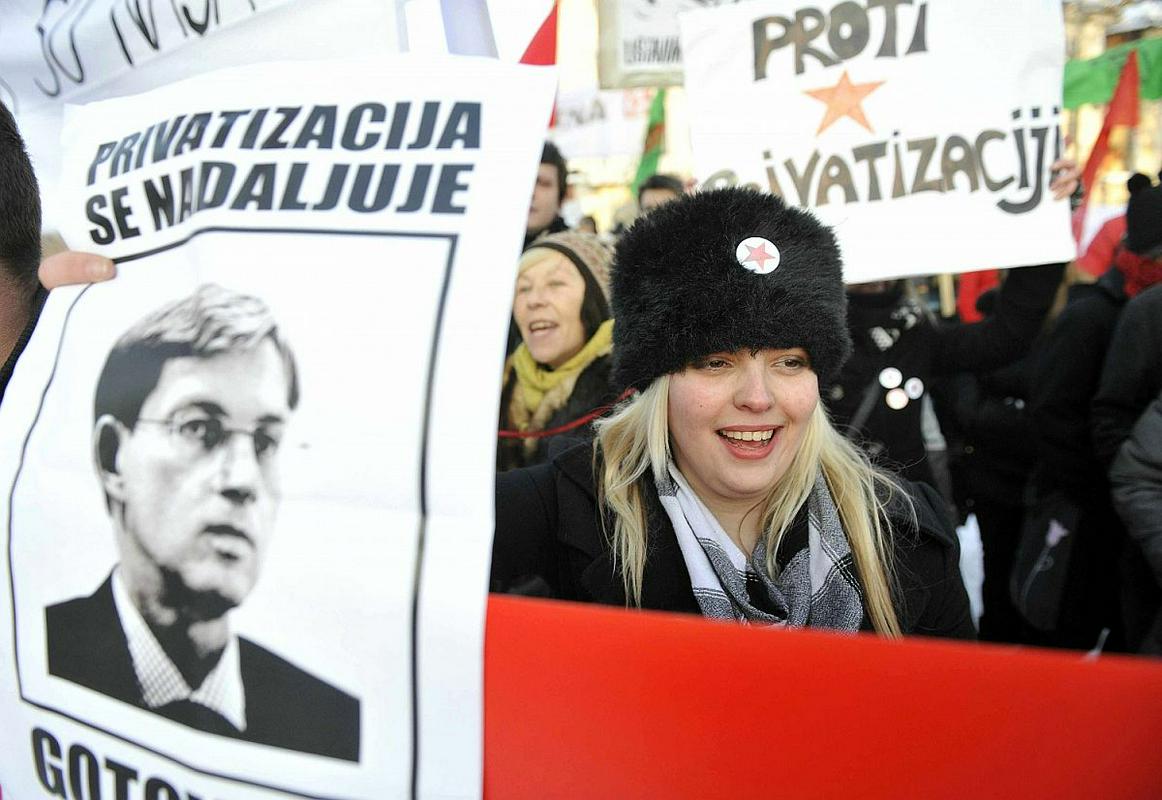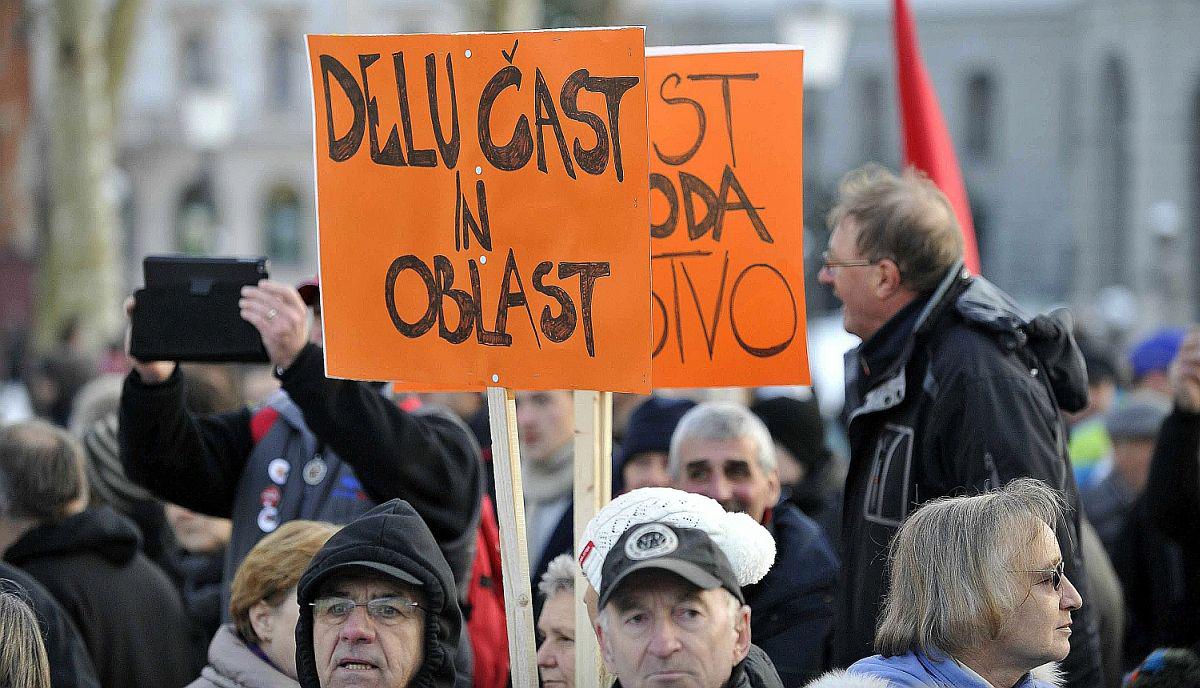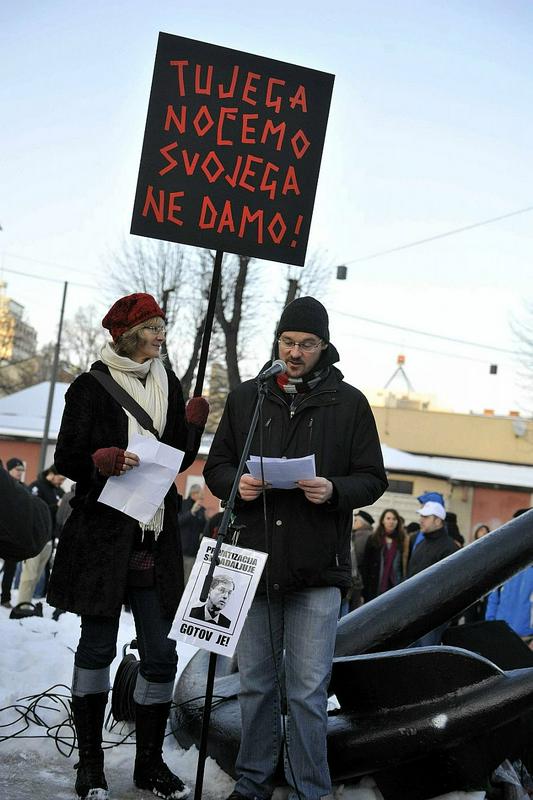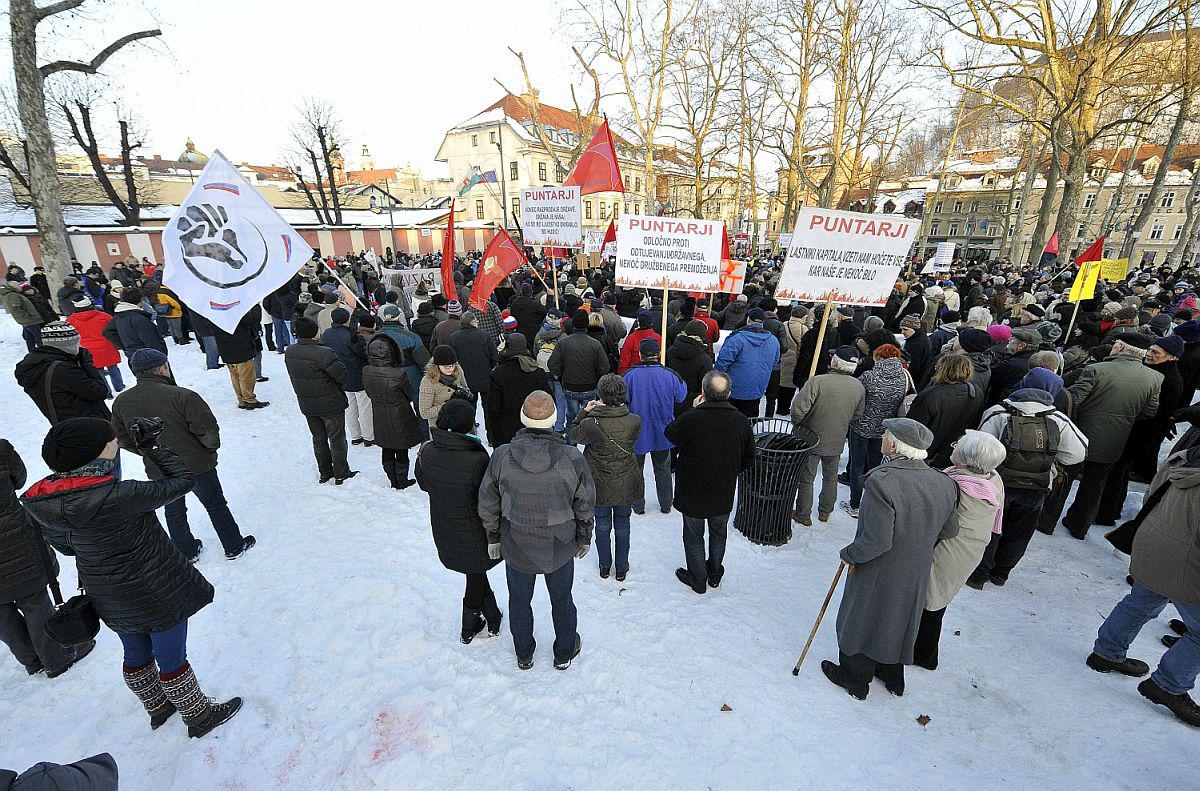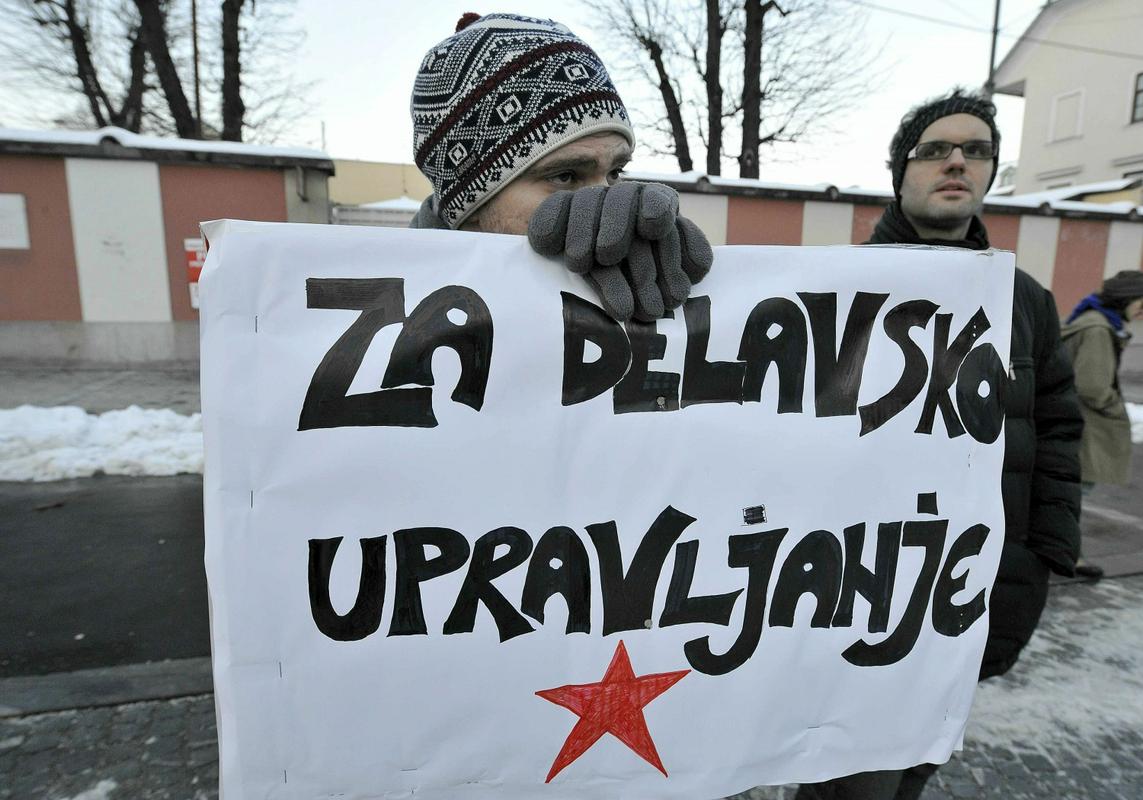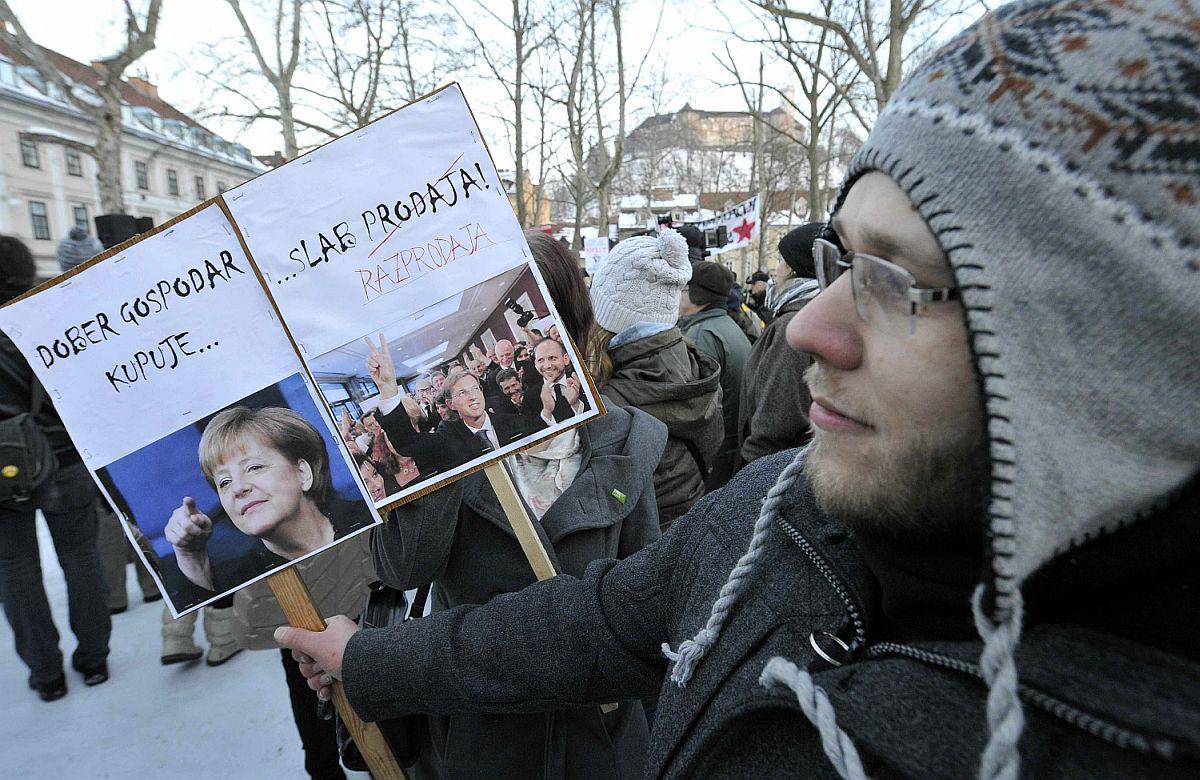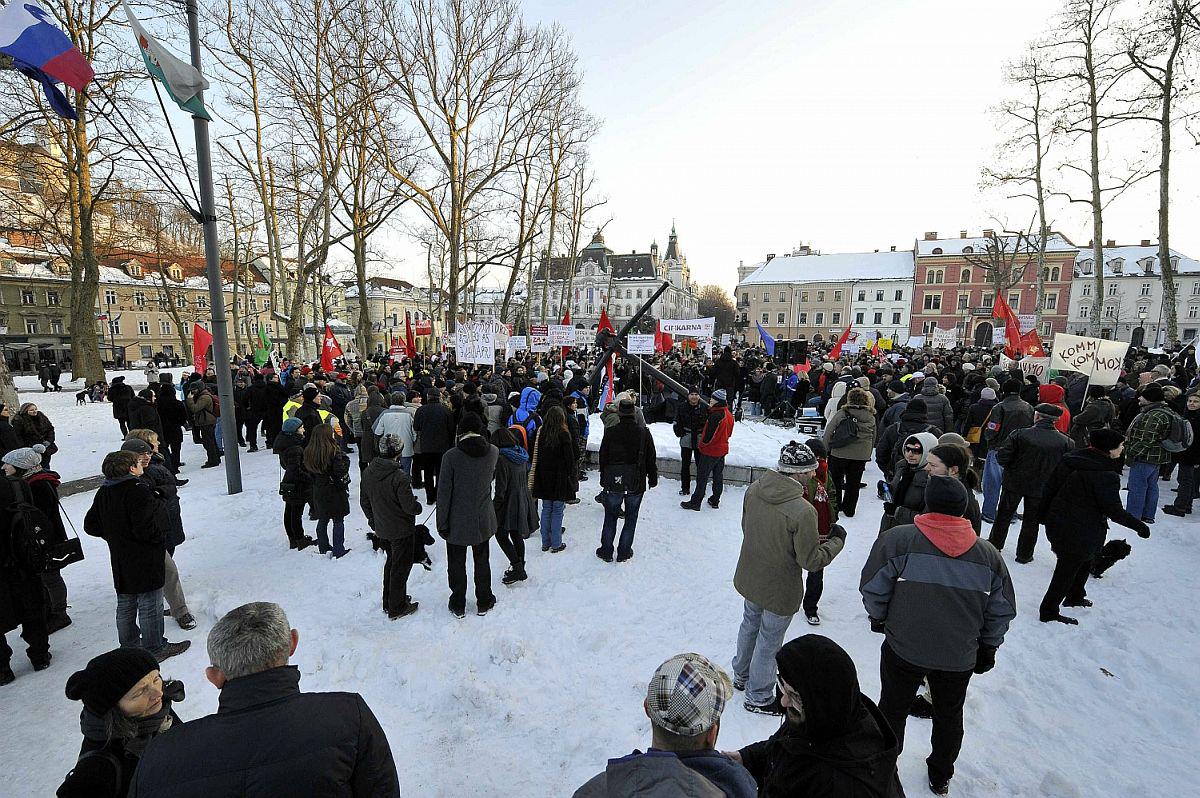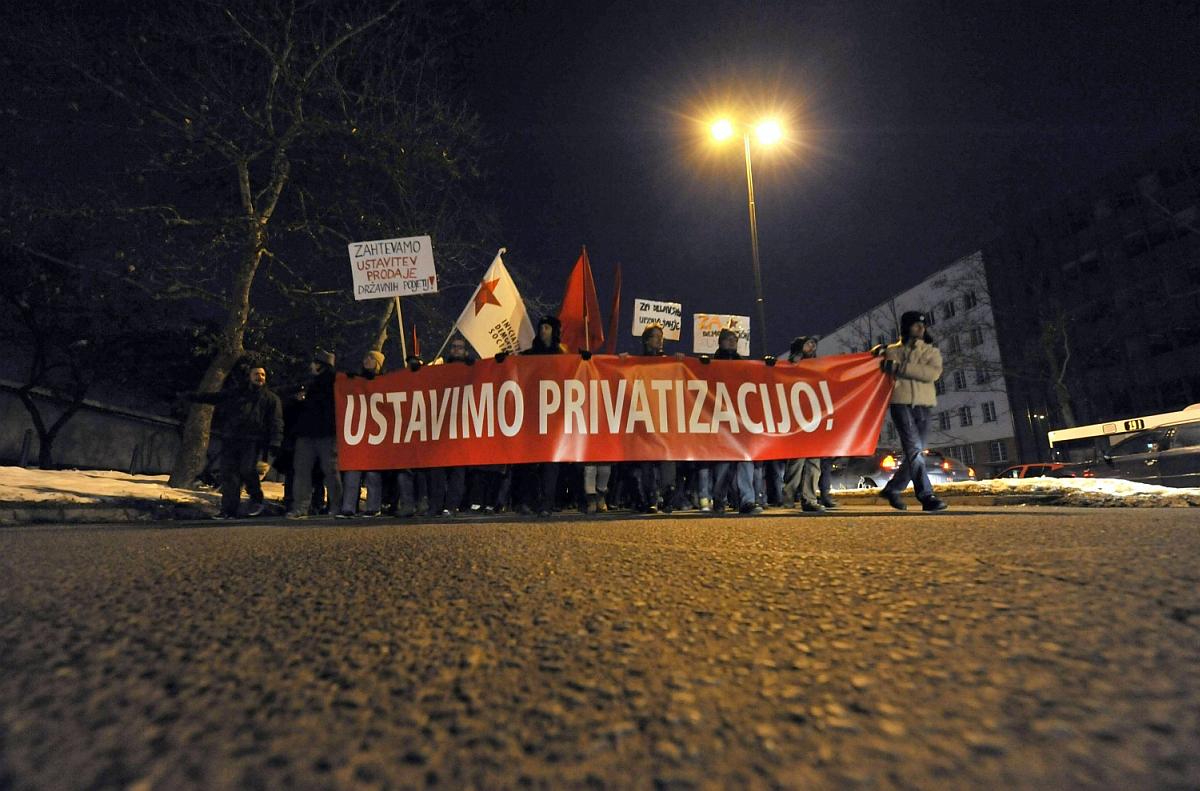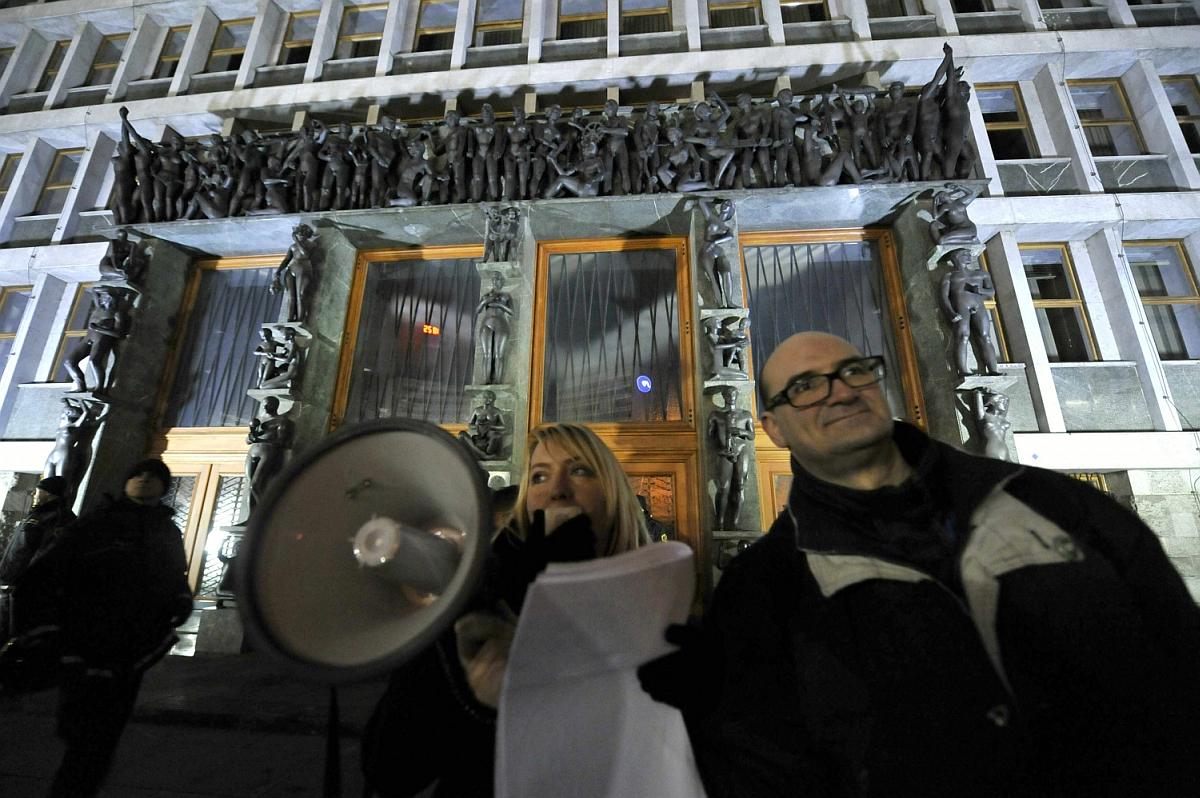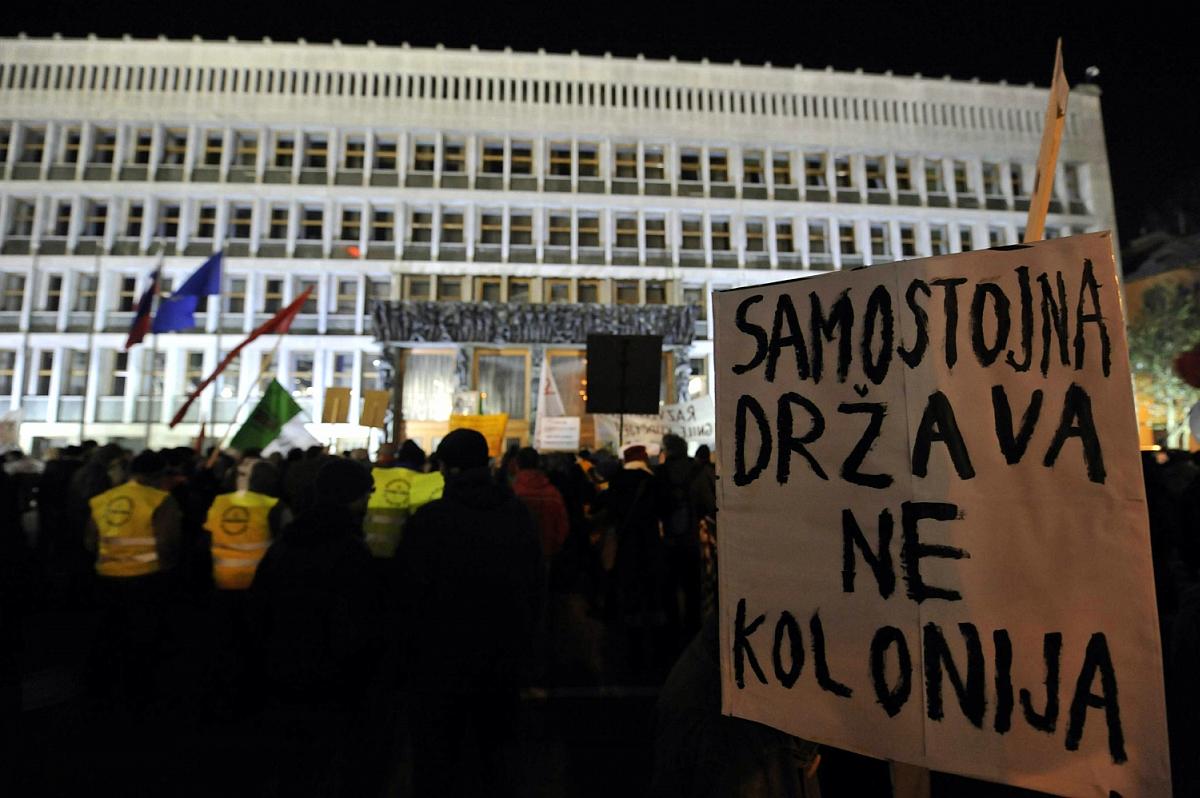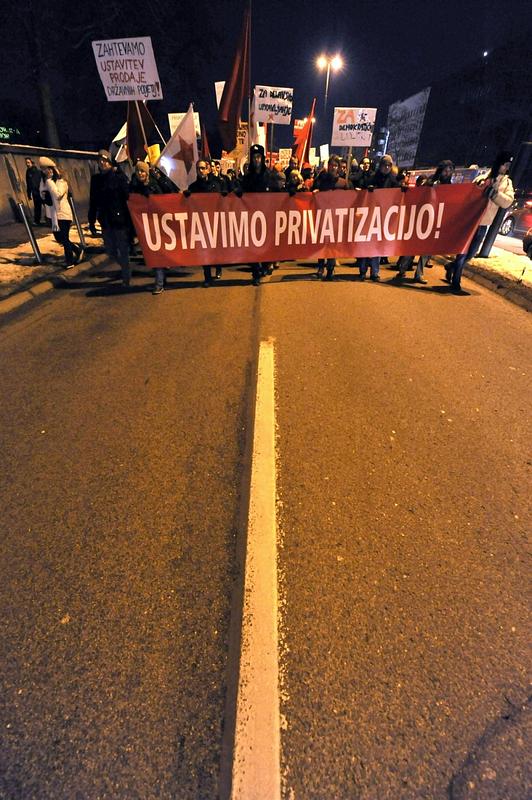
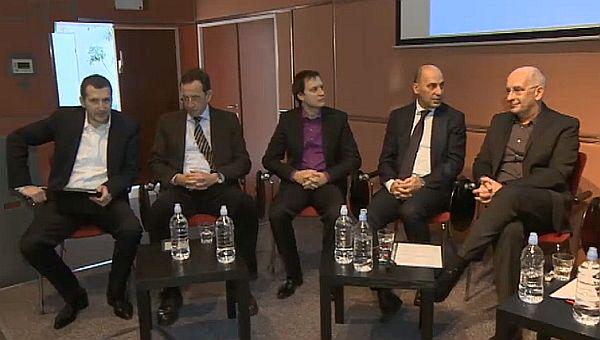
Braving sub-zero temperatures in the snow-covered capital Ljubljana, protesters waved flags and banners which read "Privatisation is theft" and "Let's write off debt, not companies".
"All profit of privatised firms goes to other countries while our country will get nothing from these sales," said retired publisher Ziva Vidmar, 65, one of an estimated 3,000 protesters.
Opponents of privatisation say it will only increase unemployment and worsen Slovenia's financial plight.
Slovenia has been reluctant to sell its major firms since gaining indepdendence from Belgrade in 1991 so the government still controls about half of the economy.
The government earmarked 15 firms in 2013 for privatisation but has so far sold only three. The biggest on the list, telecoms operator Telekom Slovenia with a market capitalisation of 979 million euros, is expected to be sold in the coming weeks.
Supporters of privatisation attending a conference in Ljubljana on Saturday said it was needed to bring fresh capital into Slovenia, which joined the European Union in 2004.
"Privatisation is a precondition for development and competitiveness of the Slovenian economy," said economist Marko Simoneti, a former head of the supervisory board of Slovenia's largest bank, state-owned Nova Ljubljanska Banka.
A recent opinion poll by polling agency Delo Stik showed 44 percent of Slovenians opposed privatisation while 36 percent supported it.
In 2013 Slovenia had to pour more than 3 billion euros of its own money into local banks, which are mostly state-owned, to prevent them from collapsing under a large amount of bad loans and enable the country to avoid an international bailout.
Slovenia's economy expanded by some 2.5 percent in 2014, boosted by higher export demand, after two consecutive years of recession. The government expects growth of about 2 percent this year and also hopes to cut its budget deficit to 2.9 percent of national output from 5.3 percent in 2014.
Reuters, Photo: BoBo




















































